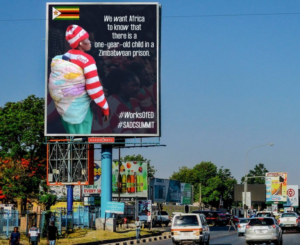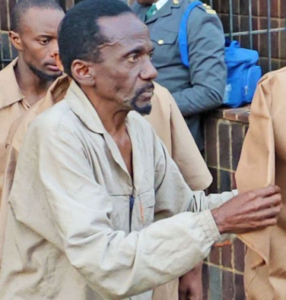MNANGAGWA’S BOLD MOVE RAISES QUESTIONS IN ZIMBABWE

In a move that has shocked many in Zimbabwe, President Emmerson Mnangagwa has made a dramatic and possibly illegal appointment. He has named General Phillip Valerio Sibanda, the commander of the Zimbabwe Defence Forces, as an ex-officio member of Zanu PF’s main decision-making group, the politburo. This action is seen by many as part of a strategy to secure his power and bring more military influence into politics.
This shift in power became more obvious after Lieutenant-General Anselem Nhamo Sanyatwe was appointed as the commander of the Zimbabwe National Army. Sanyatwe, who was the former commander of the Presidential Guard, played a key role in the 2017 coup against the former president Robert Mugabe. He is a close ally of Vice-President Constantino Chiwenga but is reportedly not trusted by President Mnangagwa.
Sibanda’s appointment was announced unexpectedly at the Zanu PF annual conference in Gweru. President Mnangagwa said, “The amended 2023 Party Constitution gives impetus, urgency and renewed focus to the socio-economic and political realities of our country towards lifting many out of poverty and into prosperity.” He also spoke about the loss of a party member, Cde Joshua Teke Malinga, and named Cde Rose Mpofu as the new Secretary for People with Disabilities. He then introduced General Phillip Valerio Sibanda as an Ex Officio Member of the Politburo.
However, this appointment has raised concerns because it seems to go against Section 211 of the Zimbabwean constitution. This section states that “The Defence Forces must respect the fundamental rights and freedoms of all persons and be non-partisan, national in character, patriotic, professional and subordinate to the civilian authority as established by this constitution.” General Sibanda’s new role appears to break this rule, mixing the military with political power.
Bringing military leaders into key political roles is not just against the constitution, but it could also lead to an authoritarian style of governance. The military’s involvement in politics threatens democracy and might concentrate power too much, hurting the relationship between the military and civilians in Zimbabwe. As this news spreads, citizens, political analysts, and legal experts are worried about what this bold move by President Mnangagwa will mean for the future. They fear that more military influence in politics could lead to more authoritarian rule, hurting the democratic values that are important for Zimbabwe’s growth and stability.
This action by President Mnangagwa has certainly put Zimbabwe into uncertain political times, with many unsure of what will happen next. The blending of military and political power could change the country’s future in unpredictable ways. The effects of this decision will be watched closely by people inside and outside of Zimbabwe, as it could shape the nation’s path for years to come.



